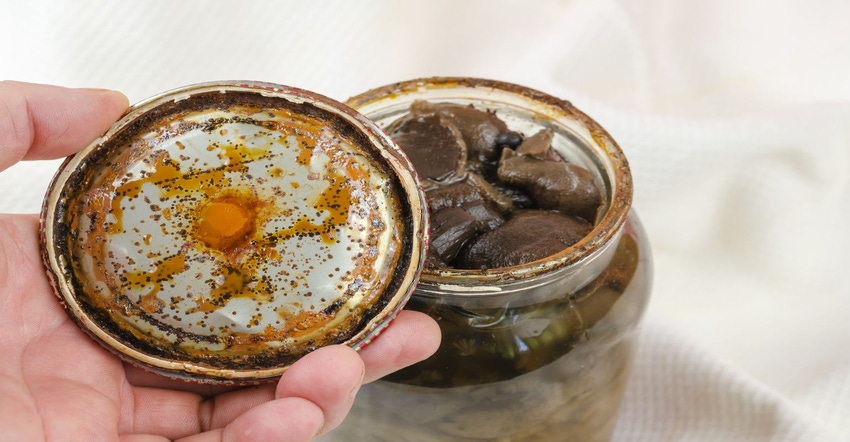
An international consortium educating herbal and dietary supplement stakeholders about ingredient and product adulteration has adopted voluntary standards to ensure an “irreparably defective” substance that cannot be reconditioned or remediated for lawful use is permanently removed from the global supply chain.
A group of experts comprised of ingredient suppliers, branded supplement companies, trade associations and others will formally introduce the “best practices standardized operating procedure” (SOP) for the disposal/destruction of “irreparably defective articles” on Nov. 2 at SupplySide West in Las Vegas during an education session from 2 p.m. to 3:30 p.m.
The completed standards reflect the work of the ABC-AHP-NCNPR Botanical Adulterants Prevention Program (BAPP), a consortium focused on reducing adulteration in botanical ingredients used in cosmetics, conventional food, dietary supplements and other natural health products.
BAPP, which produces multiple peer-reviewed publications annually regarding adulteration issues, was created in 2011 by the American Botanical Council (ABC), American Herbal Pharmacopoeia (AHP) and University of Mississippi’s National Center for Natural Products Research (NCNPR).
The SOP created a new regulatory term, “irreparably defective article (IDA),” and it applies to ingredients—botanical as well as non-botanical—that may be subject to accidental or intentional adulteration or accidental contamination, according to an Oct. 19 news release from BAPP.
"We appreciate the ABC-AHP-NCNPR Botanical Adulterants Prevention Program for raising awareness and bringing attention to this issue," an FDA spokesperson said, in response to a request for comment on the SOP.
While ingredients in the U.S. and other countries must be tested for identity and purity and cannot be released into manufacturing if they do not meet specifications, good manufacturing practices (GMPs) regulations don’t offer guidance concerning how a buyer should handle rejected material that cannot be reconditioned for lawful use, BAPP said in the news release.
Such defective ingredients are the subject of the SOP, which contains the following materials: contract language templates for the buyer and seller; a three-way confidentiality agreement among the buyer, seller and contract analytical lab; and frequently asked questions that were raised during two public comment periods in which recommendations were offered by analytical chemists, food and drug law attorneys, and other botanical, regulatory and supplement experts, according to BAPP.
“Over the past 12 years, BAPP has published 75 extensively peer-reviewed documents that confirm the presence of adulterated, fraudulent ingredients (mis)labeled as herbal raw materials, extracts and essential oils,” said Mark Blumenthal, founder and executive director of ABC and founder and director of BAPP, in the news release. �“These highly constructive BAPP publications are used by many responsible members of the herb industry, in the United States and internationally, to set appropriate quality specifications for their botanical ingredients.”
Blumenthal, who will discuss the SOP at SupplySide West, added, “Now, BAPP has expanded its range of activity by providing responsible members of the food, supplement, cosmetic and OTC drug industries with this SOP so that they can remove ingredients from the supply chain that should never have been offered for sale in the first place. Ultimately, this results in better quality products reaching consumers.”
Several other experts are scheduled to join Blumenthal during the SupplySide West education session, “Burn It; Don’t Return It! BAPP’s Best Practices SOP for the Disposal / Destruction of Irreparably Defective Articles.” Among others, they include Christine Burdick-Bell of Pharmavite, David Trosin of NSF International, Jim Emme of NOW Health Group and Joseph Betz of the National Institute of Health’s Office of Dietary Supplements.
Michael Levin, founder of Business Health Strategies LLC, who is the primary consultant and principal author of the SOP, also is among the 16 experts who will discuss the new standards during the SupplySide West event.
“Carefully constructed to fairly protect buyers, suppliers and analytical laboratories, these best practices provide a cGMP-compliant framework to stop the resale of ‘irreparably defective, and potentially harmful articles’ (e.g., ingredients) from being resold into commerce,” Levin said in the news release. “Because of the extensive input from a variety of expert industry stakeholders during its development, we expect this SOP to be widely adopted.”
About the Author(s)
You May Also Like






.png?width=800&auto=webp&quality=80&disable=upscale)